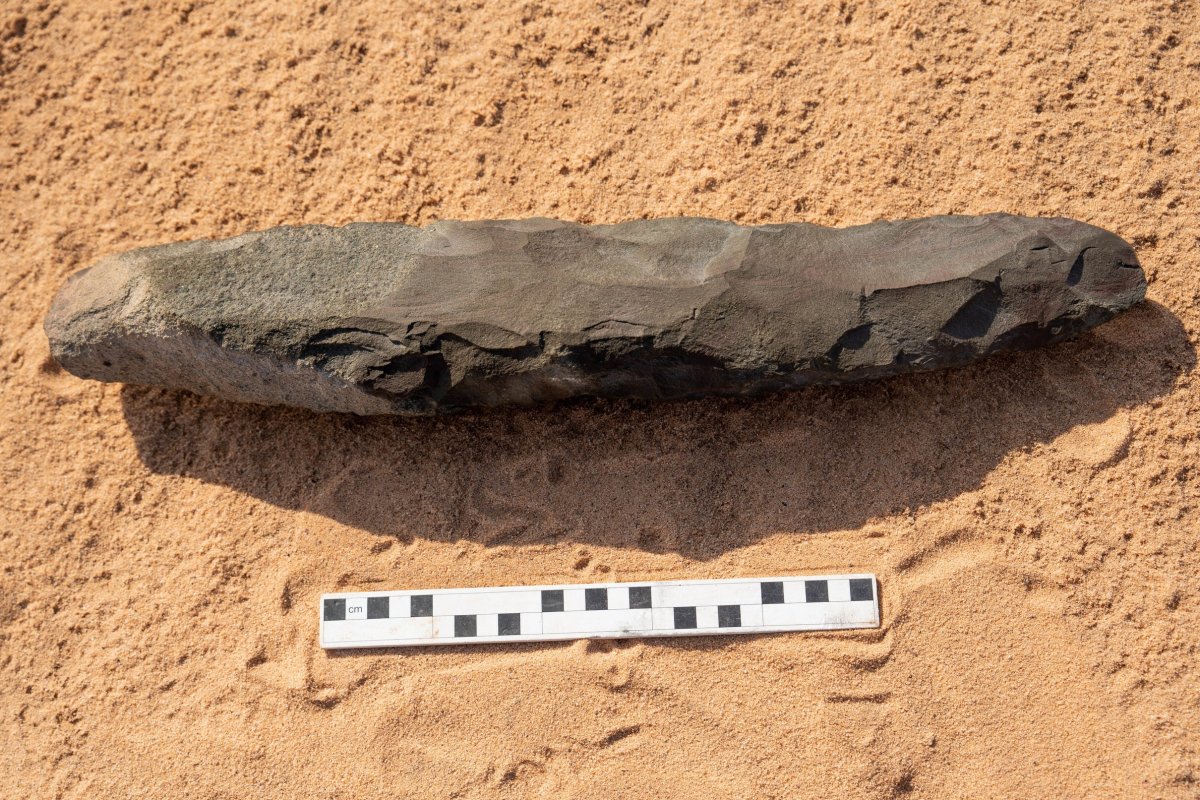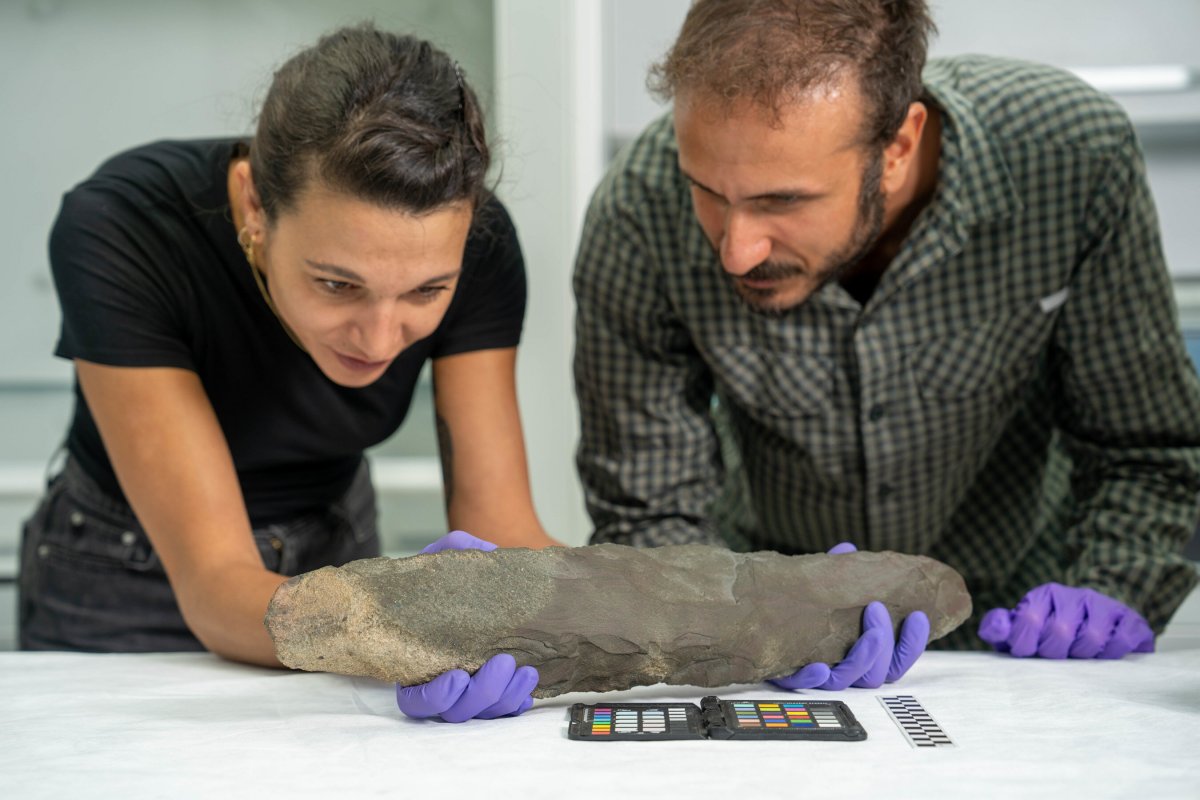Archaeologists have discovered a giant hand ax that is thought to be more than 200,000 years old.
An international team of research researchers uncovered the prehistoric stone artifact during an archaeological survey conducted in a desert landscape known as the Qurh Plain in northwestern Saudi Arabia.
"This hand axe is one of the most important finds from our ongoing survey of the Qurh Plain. This amazing stone tool is more than a half a meter [around 20 inches] long and is the largest example of a series of stone tools discovered on the site," project director Ömer Aksoy, with TEOS Heritage, an archaeological consultancy firm based in Turkey, said in a press release this week.
"An ongoing search for comparisons from across the world has not come up with a hand axe of equal size. As such, this may well be one of the largest hand axes ever discovered," Aksoy said.

The Qurh Plain is located to the south of AlUla, an ancient oasis city featuring mud-brick and stone houses, which was founded in the 6th century B.C.
The area surrounding AlUla is a region of outstanding natural and cultural significance in Saudi Arabia, containing important archaeological remains and sites. Aside from the city of AlUla itself, the region is also home to Saudi Arabia's first UNESCO World Heritage Site, Hegra. Video of the discovery can be seen here.
Hegra is an ancient city spanning around 52 hectares, much of which dates back to the 1st century A.D. The site contains nearly 100 well-preserved tombs with elaborate facades cut into the outcrops of sandstone.
The city was once the southernmost settlement of the Nabatean Kingdom, whose capital city was Petra—a famous archaeological site in modern-day Jordan that is also listed as a UNESCO World Heritage Site.
The Nabateans were an ancient people who inhabited northern Arabia and the southern Levant. They traded incense, spices and other goods, amassing significant wealth and influence, with Petra establishing itself as a major regional hub.
A distinct Nabatean kingdom emerged from the mid-3rd century B.C., of which Petra became the capital. The kingdom became a client state of the Roman Empire in the first century B.C. and in A.D. 106, the territory was annexed, losing its independence.
Despite being renowned for its Nabatean history, the AlUla region also displays evidence of human occupation stretching back much further—around 200,000 years ago, during the middle of the Paleolithic period. Among this evidence is the stone hand ax recently uncovered by archaeologists in the Qurh Plain.

The stone tool, which measures around 20 inches in length, 4 inches wide and 2 inches thick, is made of fine-grained basalt. The evidence indicates that it had been worked on both sides to produce a robust tool with usable cutting or chopping edges. At this stage, it is not clear exactly what the tool was used for, the researchers said.
The survey being conducted in the Qurh Plain is still ongoing, and the artifact is one of more than a dozen similar, albeit somewhat smaller, Paleolithic hand axes that have been uncovered.
Uncommon Knowledge
Newsweek is committed to challenging conventional wisdom and finding connections in the search for common ground.
Newsweek is committed to challenging conventional wisdom and finding connections in the search for common ground.
About the writer
Aristos is a Newsweek science reporter with the London, U.K., bureau. He reports on science and health topics, including; animal, ... Read more
To read how Newsweek uses AI as a newsroom tool, Click here.








